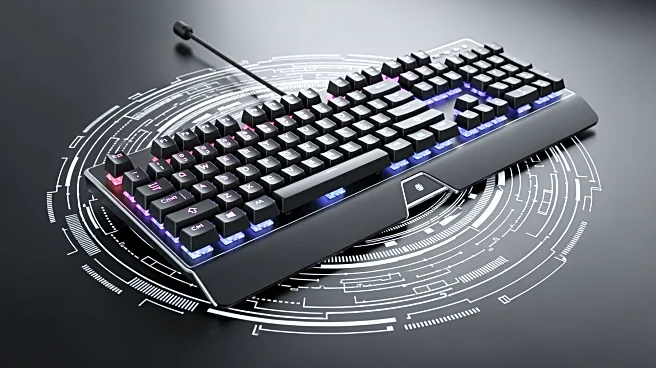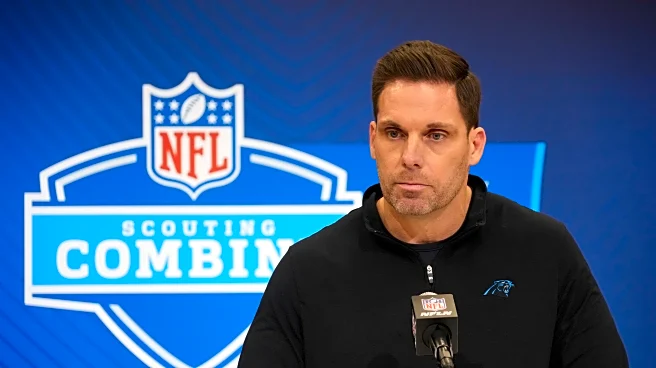What's Happening?
Call of Duty: Black Ops 7 is set to launch on November 14, with preloading available from November 10. The game, developed by Treyarch in partnership with Beenox, is tailored for PC players, offering extensive
customization options and support for a wide range of hardware. Players can optimize for visual fidelity or high FPS, with over 800 customization options available. The game supports various display resolutions, including 4K, and incorporates advanced upscaling technologies like AMD FSR 4. System requirements vary, with recommended specs including an AMD Ryzen 5 1600X or Intel Core i7-6700K CPU, 12 GB RAM, and an AMD Radeon RX 6600XT or NVIDIA GeForce RTX 3060 GPU. The game requires TPM 2.0 and Secure Boot for enhanced security. Intel ARC GPUs need Resizable Bar support, and only Intel/AMD processors with AVX instruction sets are supported.
Why It's Important?
The launch of Call of Duty: Black Ops 7 is significant for the gaming industry, particularly for PC gamers who demand high performance and customization. The game's support for advanced technologies like AMD FSR 4 and its extensive hardware compatibility reflect the growing trend towards more immersive and visually stunning gaming experiences. This release could influence hardware sales, as players may upgrade their systems to meet the game's demanding specifications. Additionally, the requirement for TPM 2.0 and Secure Boot highlights the increasing focus on cybersecurity in gaming, potentially setting a precedent for future releases. The collaboration between Treyarch and Beenox underscores the importance of partnerships in delivering high-quality gaming experiences.
What's Next?
As the launch date approaches, players who pre-purchase the game can preload it to ensure readiness at launch. The game will be available across multiple platforms, including Xbox on PC, Battle.net, and Steam. Post-launch, players can expect ongoing updates and support, with additional storage space potentially required for mandatory updates. The game's performance on handheld devices like the ROG Xbox Ally suggests a push towards mobile gaming, which could lead to further developments in this area. The success of Black Ops 7 may influence future Call of Duty titles, particularly in terms of system requirements and security measures.
Beyond the Headlines
The emphasis on security features such as TPM 2.0 and Secure Boot in Call of Duty: Black Ops 7 reflects broader concerns about cybersecurity in the gaming industry. As games become more connected and complex, ensuring player safety and data protection is increasingly important. This focus on security could lead to more stringent requirements in future games, impacting both developers and players. Additionally, the game's extensive customization options and support for various hardware configurations highlight the industry's move towards inclusivity and accessibility, allowing a wider range of players to enjoy high-quality gaming experiences.










